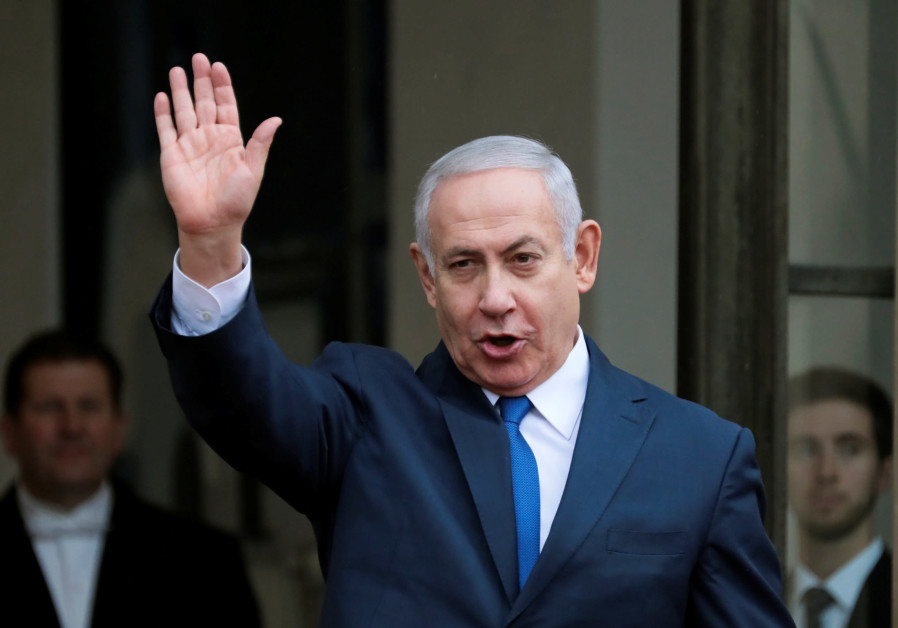Early election are inevitable – but Netanyahu is denying it

Israeli Prime Minister Benjamin Netanyahu waves as he arrives at the Elysee Palace after the commemoration ceremony for Armistice Day, 100 years after the end of World War One, in Paris, France, November 11, 2018. (photo credit: REINHARD KRAUSE/REUTERS)
Nearly all of the Likud’s coalition partners have called to go to an early election as soon as possible, but Prime Minister Benjamin Netanyahu publicly continued to express hope that it won’t happen on Friday afternoon.
Netanyahu met with Education Minister Naftali Bennett to discuss the government’s future. A source with knowledge of the meeting said that Netanyahu said there was no way for the coalition to function with only a one-seat majority, which with it was left after Avigdor Liberman resigned from the defense ministry.
However, following the meeting, Netanyahu’s spokesman claimed the prime minister said “the rumors that a decision has been made to go to an early election are not correct.”
The statement also said Netanyahu will retain the defense portfolio, which automatically reverted to him after Liberman resigned. Bennett’s ultimatum for his Bayit Yehudi party to remain in the coalition was for him to become defense minister.
The prime minister also warned of repeating the precedent of 1992, in which a right-wing party left the coalition, Labor won the subsequent election, and then-prime minister Yitzhak Rabin signed the Oslo Accords.
Netanyahu spoke with coalition party leaders on the phone Friday afternoon, saying “there is no reason to go to an election and we must make every effort not to…repeat the historic mistake of 1992 when the right-wing government was brought down, the Left took power and the disaster of Oslo was brought upon the State of Israel.
The prime minister plans to meet with party leaders in the beginning of next week.
However, nearly all the other partners in the coalition said they had gone too far down the road towards an early election to turn around. After Liberman resigned on Wednesday in protest over a ceasefire with Hamas, and took his Yisrael Beytenu party with him, the coalition was left with a one-seat majority. Finance Minister Moshe Kahlon and Interior Minister Arye Deri both called for an early election the following day.
Bennett made his ultimatum, but following Friday’s meeting with Netanyahu, sources close to the Bayit Yehudi leader made statements similar to the other coalition party leaders, that it was clear that it was not possible for the current government to continue functioning.
The Bayit Yehudi sources said this was a result of Kahlon’s resolute position on the matter – perhaps in an attempt to avoid the accusation Netanyahu and others in the Likud were making of repeating the mistakes of 1992.
Meanwhile, United Torah Judaism has yet to put out any kind of statement about an early election, but their seven seats are not enough to save Netanyahu’s government.
Netanyahu’s meetings with party leaders next week will likely be focused on reaching an agreed-upon date for the election.
Kahlon, Deri and Bennett all called for the vote to take place as soon as possible. Legally – assuming the Knesset can be dispersed in the coming week – that would be February 19. However, Kahlon is aiming for a March date. March 12 or 26 would be the likely dates, because the Purim holiday falls on March 21.
Netanyahu prefers to wait until May. May 21 or 28 are the only likely dates because Remembrance Day, Independence Day and the Eurovision song competition are earlier that month.
Join Jerusalem Post Premium Plus now for just $5 and upgrade your experience with an ads-free website and exclusive content. Click here>>






Comments are closed.